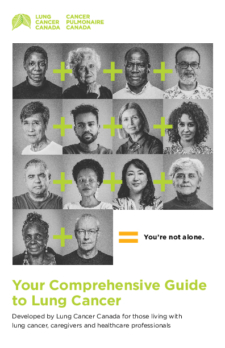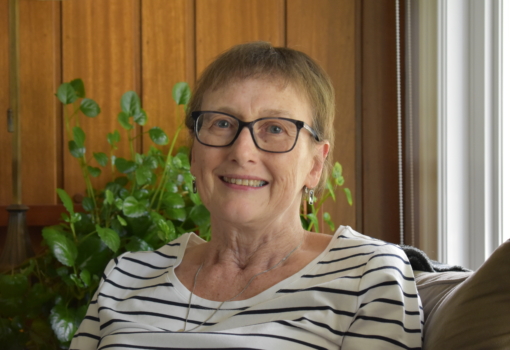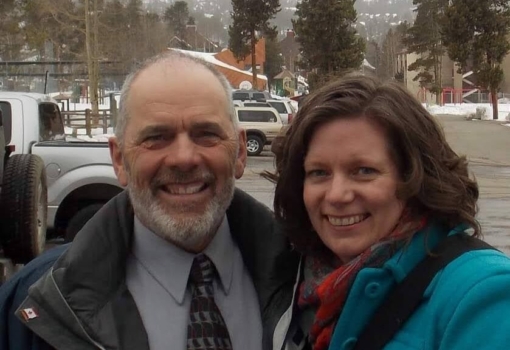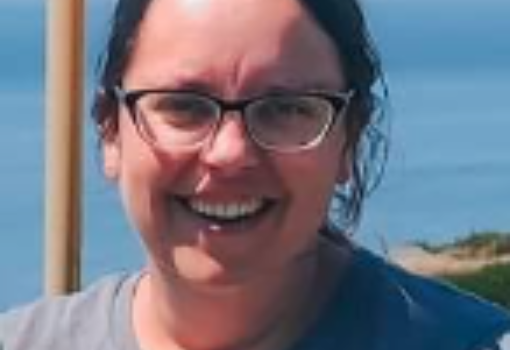
Let me introduce myself. My name is Catherine Laplante and I am an ordinary woman who has been fighting stage IV lung cancer for two years now. The news of my diagnosis came on September 8, 2022, when I was a 41-year-old non-smoker who was in perfect health. I had no idea that this was even possible.
Here is my story:
July 2022: Due to persistent pain in my rib cage, I went to see my family doctor. The doctor performed a physical exam, but decided against ordering an X-ray, as the pain was not severe enough to suggest a fracture. Instead, I was provided with a course of anti-inflammatory drugs and muscle relaxants.
On August 8, 2022, I once again consulted my doctor due to escalating pain, shortness of breath, and difficulty breathing. After an ultrasound, the radiologist informed me of a potential issue: a significant buildup of fluid between my lung and its protective lining, known as the pleura. They advised me to immediately seek medical attention at the emergency room and to provide the nurse with the results of the exam, which had uncovered a substantial pleural effusion. Following my admission to the emergency room, I was hospitalized for 10 days.
After draining two litres of fluid from my lung using a chest tube, and subjecting me to a battery of tests, I was discharged with only a fraction of the results. They could confirm that the biopsy had revealed malignant cells in the extracted fluid and a mass on my right lung, but they were unsure if it was a metastasis or a primary tumor. I was scheduled to see a specialist at the Cancer Center on September 8. I was told that I will then have more details and that the other results will finally be available. With all the information in hand, the oncologist will be able to make a diagnosis and propose a treatment plan.
Imagine the wait…
September 8, 2022: The doctor confirmed the dire prognosis… Indeed, it is lung cancer, an advanced-stage adenocarcinoma. However, the oncologist believes that it was caught in time. There are no distant metastases, but the lining of my lung is damaged. This is why I’m classified as stage IV, the worst category. My cancer is genetic (not to be confused with hereditary), caused by a gene mutation. I have access to targeted therapy, a tablet that I take daily. Unfortunately, the body can develop resistance to this miracle drug. This happened to me in August 2024. Radiotherapy and surgery were no longer an option for treating my progression. Instead, we had to switch to a new systemic treatment. My best option was chemotherapy in combination with a new targeted therapy, which I started on October 7, 2024.
It is crucial to end the stigma and increase our efforts in terms of prevention, funding and easy access to new treatments so that we can improve the survival of people suffering from the most devastating cancer in the world. “
I am not alone…
Lung cancer is traditionally associated with older people. A recent study showed a substantial rise in cancer diagnoses among individuals under the age of 55. Alarmingly, it was found that 10% of newly identified cancer cases in the US occur in seemingly healthy, non-smoking young adults, with 75% being detected at the advanced stage IV.
October is for breast cancer awareness
October is dedicated to Breast Cancer Awareness Month. This is an important time for many women and their families affected by this disease. I am grateful for the efforts made by several media outlets to support the cause. After all, breast cancer remains the most common cancer among Canadian women, accounting for 12.5% of all cancers. However, thanks to prevention, research, and increasingly effective treatments, it is possible to quickly eradicate the disease and even achieve a 90% cure rate.
Lung cancer should be of equal concern
Despite remaining the leading cause of death from cancer worldwide (for both men and women) for many years, it seems that lung cancer is not as well known as other cancers. In Canada, more people die each year from lung cancer alone than from all cases of colon, pancreatic, and breast cancer combined. This high mortality rate can be attributed to both its high incidence rate and poor survival rates. Lung cancer is the second most common type of cancer in women.
Stigma can be a barrier to diagnosis and care
Research shows that the stigma associated with a lung cancer diagnosis can be a barrier to patients seeking medical care. Cancer research has resulted in significant progress in diagnostic techniques and therapeutic options. However, funding for lung cancer research remains relatively limited, despite significant investments in other cancer research areas. Awareness campaigns linking smoking to lung cancer have certainly reduced the number of Canadian smokers. However, these campaigns may have created the perception that this population bears responsibility for their own cancer. Yet, it’s concerning to note that lung cancer rates among non-smokers are on the rise globally. A study of a group of non-smokers in the UK revealed that the incidence rate jumped from 13% in 2008 to 28% in 2014. Moreover, a National Geographic article reports that an astounding two out of three non-smokers in Taiwan develop lung cancer annually. According to Nature Reviews, globally, 25% of people who have never smoked are diagnosed and that number is expected to increase by 50% by 2040. It’s crucial to keep in mind that in 2023, lung cancer among non-smokers ranked as the fifth leading cause of death globally.
It is alarming, isn’t it?
Air pollution will become the new tobacco
We can control what we eat and how we live, but can we control the air we breathe? Several studies have shown that pollution, exposure to radon, and cases of lung cancer in non-smokers are increasing yearly. These individuals are typically healthy and asymptomatic. Recently, French researchers have recently discovered an epidemiological link between air pollution and one of the most common gene mutations in patients.
Prevention is the key to success
The unfortunate reality is that many cases go undetected, leading to a dismal survival rate. Therefore, it is crucial to step up our efforts to detect this disease quickly. Moreover, the Canadian Lung Association reports that screening for this cancer in Quebec is lagging behind other provinces and other common types of cancer. Why? This question remains unanswered…
Difficulty in accessing treatments
Accessing promising new drugs is extremely difficult in Quebec and Canada. This difficulty arises from the slow pace at which Health Canada and the Institut national d’excellence en santé et services sociaux (INESS) review and process statistics. The medical approach must prioritize individualized treatments tailored to the unique biological and genetic characteristics of each patient. The government is not at all inclined to implement this patient-centric care model.
November is Lung Cancer Awareness Month
This November, let us make sure that my message is heard loud and clear…
It is crucial to end the stigma and increase our efforts in terms of prevention, funding and easy access to new treatments so that we can improve the survival of people suffering from the most devastating cancer in the world.



